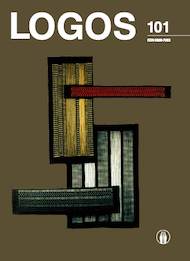Lacunarity as a Philosophical and Cognitive Category
Lacunarity as a Philosophical and Cognitive Category
Author(s): Tetiana AnokhinaSubject(s): Epistemology, Ontology
Published by: Visuomeninė organizacija »LOGOS«
Keywords: category of lacunarity; the concept of absence; the process of categorization; non-being; nothing;
Summary/Abstract: The article represents the status of lacunarity as a philosophical and cognitive category. The characteristic features of members of certain categories is analyzed through the prism of the classical Aristotelian categorization theory, and the assumption is made that those sets of members resulted from deep active cognitive processes. The issue of how the classical system of categories is enlarged by new sets of members, objects and scientific phenomena and suchlike is defined, and the issue of how new members are added is addressed. It is suggested to recognize as a philosophical and cognitive category the scientific notion of lacunarity. There are scientific arguments given to recognize the categorical status of lacunarity, whose members in one or another way adhere to the philosophical categories of “non-being” and “nothing”. The particular attention is given to validating these categories by their identifier label of “absence” in the context of understanding the “existence / non-existence” of absolute emptiness. The new compelling arguments of scientists about the possibility / inability to extract energy from vacuum are mustered. A preliminary conclusion is that lacunarity is a philosophical and at the same time cognitive category of binary nature. Its members are defined by contrasting existence / absence from the positions of “abstract non-being” and “more concrete nothing”, but in both cases as “non-absolute emptiness”.
Journal: LOGOS - A Journal of Religion, Philosophy, Comparative Cultural Studies and Art
- Issue Year: 2019
- Issue No: 101
- Page Range: 55-63
- Page Count: 9
- Language: English

